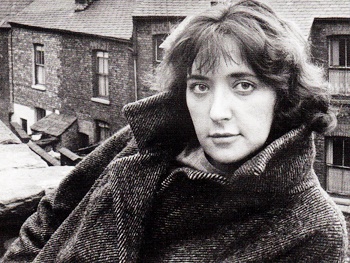Chris Nickson is a crime writer. He lives in Leeds and he’s not happy about the erosion of his city’s history and its Northern identity.
In Leeds they’re tearing down Millgarth police station to put in a shopping centre. The building coming down was a faceless brute that would have looked at home in Communist East Berlin, but that’s not quite the point. There’s been a Millgarth nick since 1872. We’re losing a sense of local history all in the name of (and I quote) ‘aspirational shopping’. Whatever that may be.
I write about Leeds. I write crime novels set here (and in Chesterfield and Seattle, but that’s another tale). In my new book, Gods of Gold, Millgarth – the original one – features prominently; it’s where my main character, Detective Inspector Tom Harper, is based in 1890. He’s a man with a good brain and a bolshie political attitude from his working-class upbringing.
So when they demolishing Millgarth, they’re not only taking away another piece of my city’s history, they’re nipping at my fiction. And that’s a real bugger.
Being a writer in the North isn’t much different to being a writer anywhere else. We have our raw materials, we have our setbacks and successes. And being a crime writer gives a neat moral framework for a story. There’s black and white, although it’s the shades of grey in between where it grows more interesting.
I write historical crime novels. There’s a series of six set in Leeds in the 1730s and this new one set in the late Victorian era. And with the demise of history – they’re also pulling down some lovely buildings on Eastgate – to appease big international money, I have a better understanding of why I prefer setting my books in the past.
There was a time when the North was truly different. Right up until the 1980s it had a very real identity. Until Thatcher finished off the industries and mining and gave Britain to the bankers and their bastard offspring, the venture capitalists. Now, barring a few quirks, like the lovely arcades in Leeds for instance, the high street of any Northern city is interchangeable with one from anywhere else in the country. They’re trying to turn us all into aspirational shoppers, identikit people. So, take some from Bolton and plop them down in Reading, or vice versa, and they’d be able to head into River Island and barely notice the change
Another 20 years and they might well succeed.
 In December 1960, when Coronation Street first aired, people down South were shocked to find Northern accents on their televisions and see people who lived in terraced houses. Now you’d be hard-pressed to distinguish between people on Emmerdale and Eastenders.
In December 1960, when Coronation Street first aired, people down South were shocked to find Northern accents on their televisions and see people who lived in terraced houses. Now you’d be hard-pressed to distinguish between people on Emmerdale and Eastenders.
Yes, there are a few Northern things, like Rugby League (which Hull-based crime writer Nick Quantrill has explored so well). But overall I feel sorry for anyone writing contemporary crime set in the North. The character is slipping away.
It’s long been a place of political protest and unrest, from the massacre at Peterloo in 1819 to Orgreave in the 1980s. It was the home of the Independent Labour Party, formed in 1893, of the early suffragists, also in the 1890s. It was the place of the Industrial Revolution and those dark Satanic mills, now demolished or turned into museums. It was where women had to be strong and so did the men, just in order to survive. In 1840 in Leeds, life expectancy for the working classes was 19 years. For those slightly better-off, just 27 years. The well off, on average, lasted 44 years. Grim up North? Better believe it.
But we stood up for our bloody rights. And sometimes we won them. Gods of Gold (yes, I’m harping on, I know) is set against the backdrop of the 1890 Leeds Gas Strike. The council decided they could make more money by laying off gas workers in the summer when demand was low, and rehiring fewer of them at lower wages. Does that tactic sound familiar? It should. But back then the protest was so loud and widespread that the workers won in just three days. Nowadays, whatever multinational owned the business wouldn’t even pay attention.
I use the past to illustrate the present. The farming out of public services to private hands. Greed. But always with a very Leeds slant. Crime was local then. Now it’s national, and growing more global every day. And much of it happens with the consent of the politicians.
The North was a place full of strong women. There’s one in…well, you don’t need to hear the name of the book again. You could look at one and see her strength and character. Mine rises from being a servant in a pub to owning the place, as well as running a couple of bakeries. From poor beginnings she’s become well-off. And still lives above the pub. She’s comfortable there, around people she understands, even if she can afford a large house in the suburbs. Women like that still exist, thank God, but when everyone dresses in the same High Street clothes, they’re becoming harder to find.
There’s still crime in the North, and plenty of it. When you don’t have enough and you’re desperate enough, you’ll steal to feed yourself and your family. But the biggest crime up here, and one that’s probably beyond the power of any writer to solve, is the way that its character is being diluted and leeched away. And even more, perhaps, that we’re complicit.
By Chris Nickson
 For more information about Chris, click here
For more information about Chris, click here











